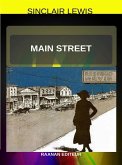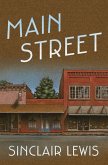In "Babbitt" and "Main Street," Sinclair Lewis deftly critiques the quintessential American life of the 1920s through a biting and satirical lens. "Babbitt" follows George F. Babbitt, a middle-class real estate broker, as he grapples with societal expectations and a burgeoning sense of discontent that propels him into an existential crisis. In "Main Street," Lewis chronicles the experiences of Carol Kennicott, an ambitious woman endeavoring to bring modernity and sophistication to the provincial town of Gopher Prairie. Both works display Lewis's sharp wit, keen observations, and masterful use of dialogue, embodying the tensions between individual desires and community conformity within the burgeoning American landscape. Sinclair Lewis, the first American to win the Nobel Prize in Literature in 1930, was a formidable social commentator whose own Midwestern upbringing informed his deep understanding of the American psyche. His experiences in small towns and his disdain for complacent societal norms fuel his narratives, making the characters in both novels profoundly relatable. Lewis's incisive critique of capitalism and his exploration of the American Dream expose the vacuity of materialism and the yearning for authenticity within the human experience. Readers seeking an astute exploration of societal norms, personal ambition, and the struggle for authenticity in American life will find both "Babbitt" and "Main Street" invaluable. These novels not only reflect the zeitgeist of their time but also resonate with contemporary readers, offering profound insights into the perennial conflicts of individuality versus conformity. Immerse yourself in Lewis's incisive prose, and discover the enduring relevance of his message.
Dieser Download kann aus rechtlichen Gründen nur mit Rechnungsadresse in A, B, BG, CY, CZ, D, DK, EW, FIN, F, GR, H, IRL, I, LT, L, LR, M, NL, PL, P, R, S, SLO, SK ausgeliefert werden.










